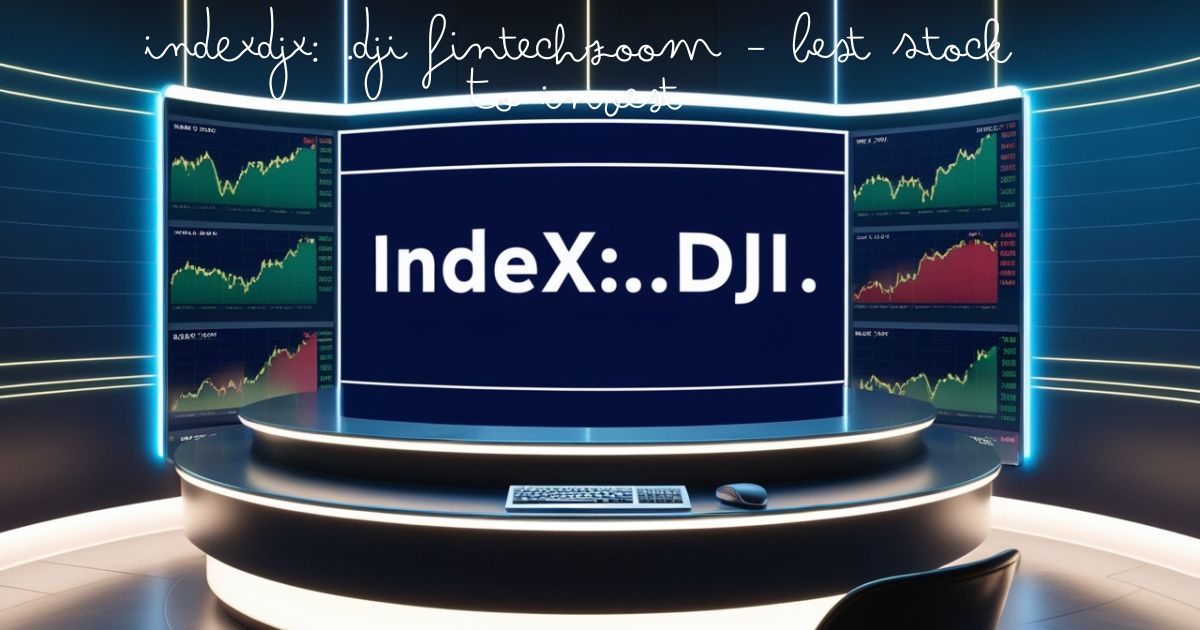In today’s fast-paced financial world, staying ahead of market trends is crucial for investors. The Dow Jones Industrial Average (DJIA), represented by the ticker symbol INDEXDJX: .DJI, has long been a cornerstone of market analysis. With platforms like FintechZoom revolutionizing how we access financial information, let’s dive deep into the world of the Dow and explore the best stocks to invest in.
The Dow Jones Industrial Average: A Market Barometer
The Dow Jones Industrial Average (DJIA), ticker symbol INDEXDJX: .DJI, isn’t just another number flashing on stock tickers. It’s the granddaddy of stock market indices, offering a quick pulse check on America’s economic health since 1896.
Picture this: 30 of the biggest, bluest-chip companies in the U.S., all rolled into one index. That’s the Dow for you. It’s weathered everything from the Great Depression to the dot-com bust, and it’s still ticking. Talk about resilience!
But here’s the kicker – the DJIA isn’t your average index. It’s price-weighted, which means the priciest stocks call the shots. This quirk can sometimes make the Dow dance to a different tune than the broader market.
History of INDEXDJX: .DJI
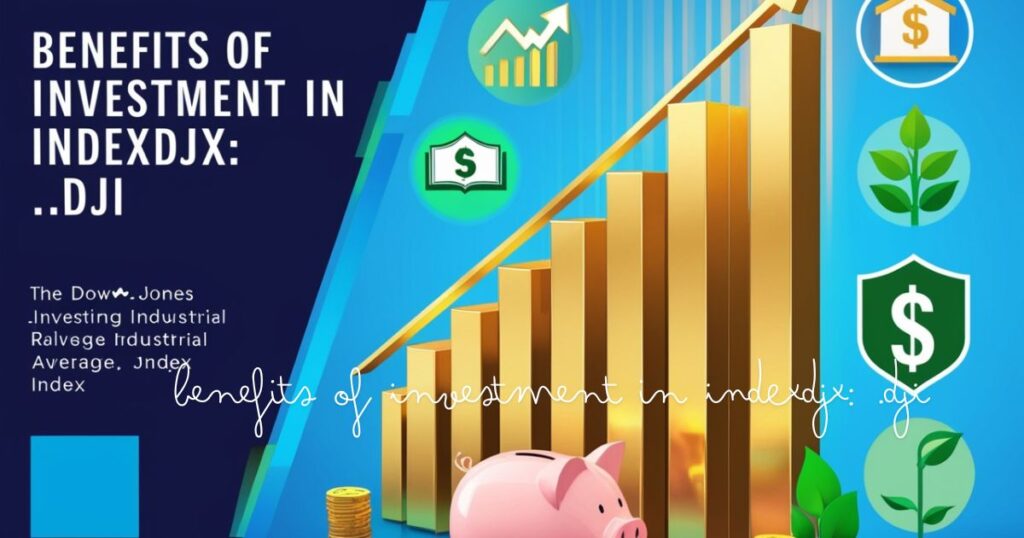
The DJIA’s journey began in 1896 when Charles Dow and Edward Jones launched it with just 12 industrial companies. Over the decades, it’s transformed into a 30-stock powerhouse, reflecting the changing face of the American economy.
- 1896: DJIA debuts with 12 stocks
- 1920s: Roaring bull market pushes DJIA to new heights
- 1929: Black Tuesday crash marks the beginning of the Great Depression
- 1950s-60s: Post-war economic boom propels the index
- 1987: Black Monday sees the DJIA’s largest one-day percentage drop
- 1999: DJIA crosses 11,000 for the first time
- 2008: Global financial crisis hits, but DJIA recovers
- 2020: COVID-19 pandemic causes volatility, but tech stocks drive recovery
The DJIA’s resilience through these historical challenges showcases its importance as a financial indicator. It’s not just a number – it’s a testament to the U.S. economy’s strength and adaptability.
Main Competitors of INDEXDJX: .DJI
While the Dow is a heavyweight, it’s not the only player in town. Let’s size up its main competitors:
- S&P 500 (INDEXSP: .INX): Broader market representation with 500 large-cap U.S. stocks
- Nasdaq Composite (INDEXNASDAQ: .IXIC): Tech-heavy index with over 3,000 stocks
- Russell 2000 (INDEXRUT: .RUT): Focuses on small-cap U.S. companies
- FTSE 100 (INDEXFTSE: .FTSE): Represents the top 100 companies on the London Stock Exchange
- DAX (INDEXDB: .GDAXI): Germany’s blue-chip stock market index
- Nikkei 225 (INDEXNIKKEI: .N225): Japan’s leading stock market index
- Hang Seng Index (INDEXHSI: .HSI): Hong Kong’s stock market benchmark
Each of these indices offers a unique perspective on different market segments or geographical regions. Savvy investors often track multiple indices to get a comprehensive view of global market trends.
Benefits of Investment in INDEXDJX: .DJI
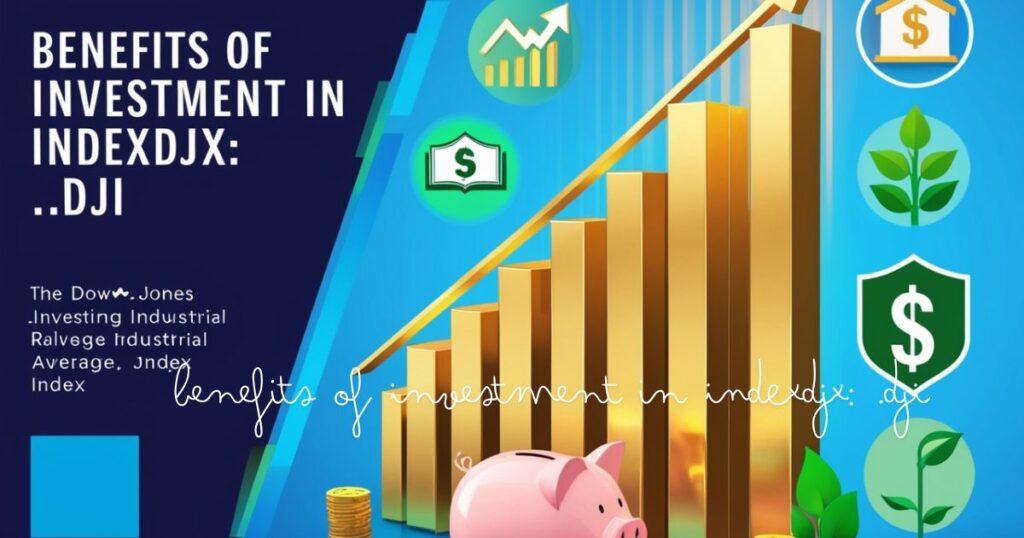
Investing in the Dow isn’t just for Wall Street bigwigs. Here’s why it might be a smart move for you:
- Diversification: With 30 major companies across various sectors, you’re spreading your risk.
- Blue-chip stability: These aren’t flash-in-the-pan startups – we’re talking industry titans with solid track records.
- Historical performance: The Dow’s long-term growth trend can be appealing for patient investors.
- Dividend income: Many Dow components are known for their consistent dividend payouts.
- Ease of tracking: As a widely followed index, information and analysis are readily available.
Remember, past performance doesn’t guarantee future results, but the Dow’s historical resilience is certainly noteworthy.
Risks of Investment in INDEXDJX: .DJI
While the Dow can be a solid investment, it’s not without its pitfalls. Here are some risks to keep in mind:
- Limited diversification: With only 30 stocks, it’s not as diverse as broader indices like the S&P 500.
- Price-weighted quirks: Higher-priced stocks have a disproportionate impact on the index.
- Sector bias: The Dow may overrepresent certain sectors while underrepresenting others.
- Global economic sensitivity: As major multinationals, Dow components can be vulnerable to global economic shifts.
- Composition changes: Periodic changes in the index composition can impact performance.
Always remember: investing involves risk, and it’s crucial to do your homework and consult with financial advisors before making decisions.
Stocks That You Should Buy
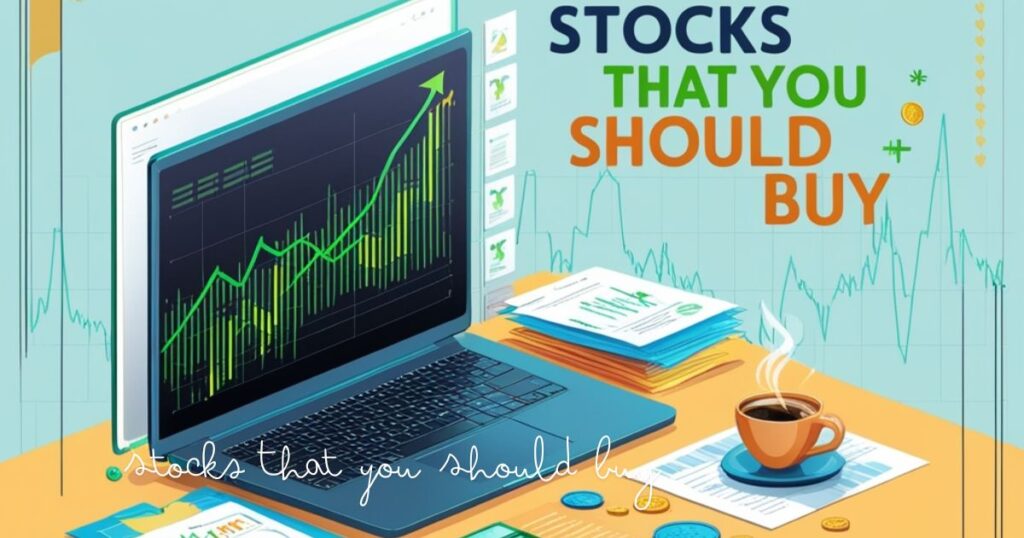
While the entire Dow index can be a solid investment, some stocks stand out. Here’s a quick rundown of notable DJIA components and other market leaders to watch:
- Apple (AAPL): The tech giant continues to innovate and expand its ecosystem.
- Microsoft (MSFT): Cloud computing and enterprise software keep it at the forefront of tech.
- Amazon (AMZN): E-commerce and cloud services powerhouse.
- NVIDIA (NVDA): Leading the charge in AI and graphics processing.
- JPMorgan Chase (JPM): A banking behemoth with a strong financial position.
Other stocks to keep an eye on include:
- Tesla (TSLA)
- Google (GOOGL)
- Meta (META)
- Walmart (WMT)
- Disney (DIS)
Remember, this list isn’t exhaustive, and market conditions can change rapidly. Always do your own research and consider your personal financial goals before investing.
See Also: FintechZoom Overview – Best Stock Market
Is INDEXDJX: .DJI A Safe Investment?
The million-dollar question: is the Dow a safe bet? Well, in the world of investing, “safe” is a relative term. Here’s the lowdown:
Pros:
- Long-term track record of growth
- Includes stable, established companies
- Regular dividend payments from many components
Cons:
- Can be volatile in the short term
- Limited to large-cap U.S. stocks
- Doesn’t capture the full market picture
While the DJIA is often considered a safer bet than individual stocks or more volatile indices, it’s not immune to market downturns. The key is to view it as part of a diversified investment strategy rather than a one-stop solution.
The Future of INDEXDJX: .DJI FintechZoom
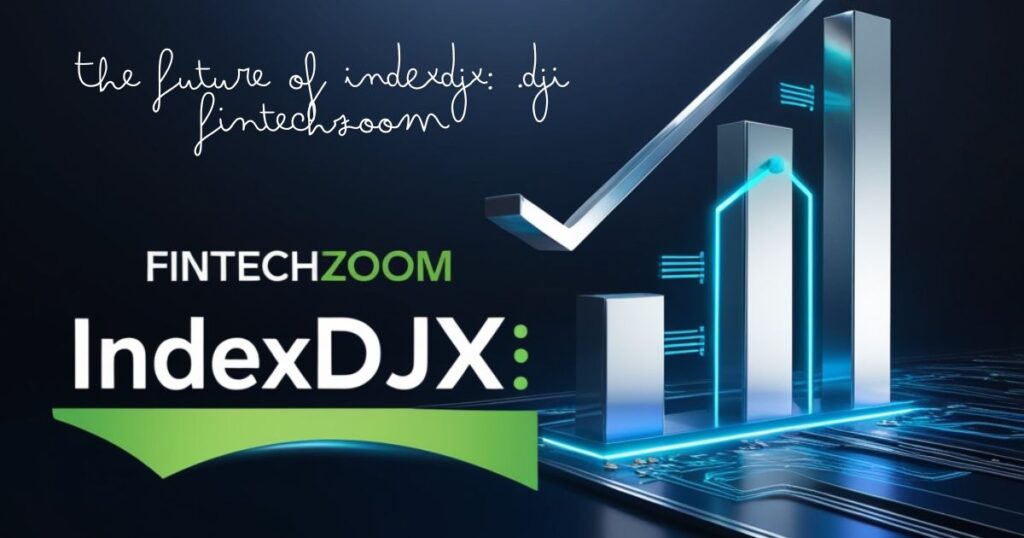
As we peer into our crystal ball, what’s on the horizon for the Dow and platforms like FintechZoom? Here are some trends to watch:
- Tech integration: Expect more tech giants to join the Dow, reflecting the digital economy’s growing importance.
- ESG focus: Companies with strong environmental, social, and governance practices may gain prominence.
- Global economic shifts: Trade relations, emerging markets, and geopolitical events will continue to influence the Dow.
- FintechZoom evolution: Platforms like FintechZoom will likely offer more advanced analytics and AI-driven insights.
- Retail investor impact: The rise of retail investing could influence market dynamics and index composition.
As Paul Jeff, a noted financial analyst, recently remarked, "The Dow's future will be shaped by its ability to adapt to rapid technological and social changes. Investors who stay informed through platforms like FintechZoom will be best positioned to navigate these shifts."
Conclusion
The Dow Jones Industrial Average (INDEXDJX: .DJI) remains a crucial barometer of the U.S. stock market and economy. While it has its quirks and limitations, its long history and the stability of its components make it an attractive option for many investors.
Platforms like FintechZoom have revolutionized how we interact with financial data, making it easier than ever to stay informed about the Dow and other market indices.
As you consider your investment strategy, remember that the Dow is just one piece of the puzzle. Diversification, thorough research, and a long-term perspective are key to navigating the complex world of investing.
Whether you’re a seasoned trader or just starting out, keeping an eye on the Dow – with tools like FintechZoom at your fingertips – can provide valuable insights into market trends and economic health. Just remember, in the ever-changing landscape of finance, staying informed and adaptable is your best strategy for success.
FAQs
What is IndexDJX: .DJI?
IndexDJX: .DJI is the ticker symbol for the Dow Jones Industrial Average (DJIA). It’s a stock market index that tracks the performance of 30 large, publicly-owned companies listed on the NYSE and NASDAQ.
How does the Dow Jones Index differ from other stock indices?
The key difference is that the DJIA is price-weighted, while many other indices like the S&P 500 are market-cap weighted. This means that higher-priced stocks in the Dow have a greater impact on its value, regardless of the company’s overall size.
Is investing in the DJIA considered safe?
While generally considered less risky than investing in individual stocks, the DJIA isn’t without risk. It offers exposure to large, stable companies but can still be affected by market volatility and economic downturns.
What factors could impact the DJIA’s future performance?
Key factors include:
- Technological advancements
- Global economic conditions
- Changes in consumer behavior
- Regulatory environment
- Geopolitical events
How often does the composition of the DJIA change?
There’s no set schedule for changes to the DJIA. Alterations are made as needed to ensure the index remains a strong representation of the U.S. economy. Changes typically occur every few years, often due to mergers, bankruptcies, or shifts in a company’s importance to the overall economy.

Jordan Blake, known at Techycrafted.com, is a veteran expert in the audio, tech and gaming industries. With a passion for innovation and experience in digital media, Jordan provides in-depth reviews and analysis for both tech enthusiasts and gamers alike.
